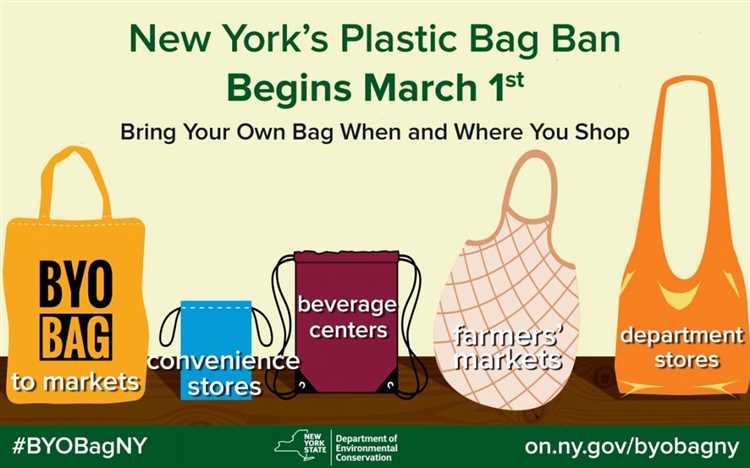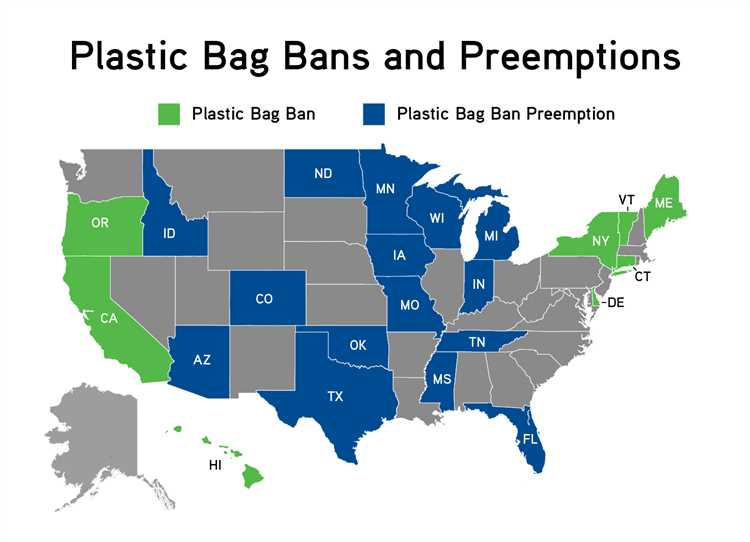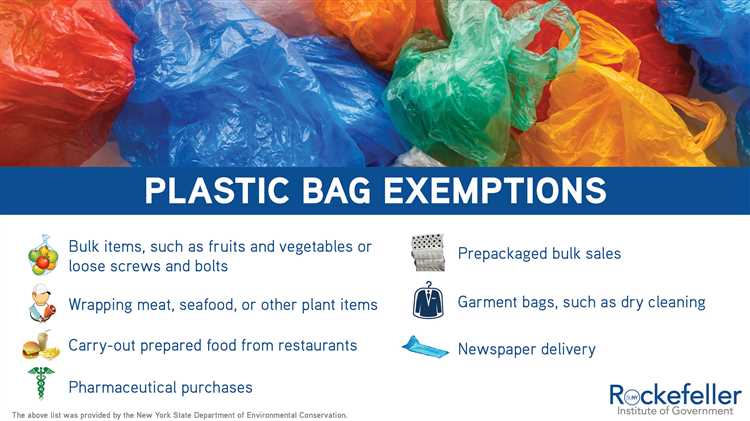
Plastic bags have become a major environmental issue, as they are non-biodegradable and can take hundreds of years to decompose. Governments around the world are grappling with this problem and considering different approaches to reduce plastic bag usage. Two popular strategies are banning them outright or implementing a tax on their usage. Both approaches have their proponents and critics, but the question remains: which one is more effective?
The banning of plastic bags has been implemented in several countries and cities with varying degrees of success. Proponents argue that a ban is the most effective way to reduce plastic bag usage, as it eliminates the option for consumers to choose them. By removing the availability of plastic bags, individuals are forced to look for alternative options, such as reusable bags or paper bags. This change in behavior can lead to a significant reduction in plastic waste and help protect the environment.
On the other hand, implementing a tax on plastic bags has also been widely debated. Supporters argue that a tax can be an effective deterrent for consumers, as it increases the cost of plastic bags and makes people think twice before using them. Additionally, the revenue generated from the tax can be used to fund environmental initiatives or promote the use of eco-friendly alternatives. However, critics argue that a tax may not be enough to change consumer behavior and that it could disproportionately affect low-income individuals who rely on plastic bags due to their affordability.
Ultimately, the effectiveness of banning plastic bags versus implementing a tax depends on various factors, such as the cultural context, the level of enforcement, and the availability of alternatives. Both approaches have their merits and drawbacks, and a combination of strategies may be necessary to effectively address the plastic bag problem. Regardless of the chosen approach, it is clear that urgent action is needed to reduce plastic waste and protect our planet for future generations.
- The negative impact of plastic bags
- Impact on waste management
- Economic impact
- Environmental pollution and harm to wildlife
- Achieving behavior change through bans or taxation
- Government intervention and industry responsibility
- Health risks associated with plastic
- Chemical exposure
- Respiratory issues
- Microplastic ingestion
- Approach 1: Banning plastic bags
- Environmental Impact
- Behavioral Change
- Economic Considerations
- Reduction of plastic waste
- Positive impact on the environment
- Approach 2: Implementing a tax
- Advantages of implementing a tax on plastic bags:
- Disadvantages of implementing a tax on plastic bags:
- Changing consumer behavior
- 1. Public awareness campaigns
- 2. Providing incentives
- 3. Collaboration with businesses
- Question and answer:
- Which approach is more effective: banning plastic bags or implementing a tax?
- What are the advantages of banning plastic bags?
- What are the disadvantages of banning plastic bags?
- What are the advantages of implementing a tax on plastic bags?
- What are the disadvantages of implementing a tax on plastic bags?
- What is the purpose of banning plastic bags or implementing a tax?
The negative impact of plastic bags
Plastic bags have become a ubiquitous part of our daily lives, but their negative environmental impact cannot be ignored. These lightweight bags are incredibly durable and inexpensive to produce, which has led to their overconsumption and subsequent disposal issues.
One of the biggest problems with plastic bags is their contribution to pollution. When not disposed of properly, these bags often end up in natural environments, such as oceans, rivers, and forests. The non-biodegradable nature of plastic allows it to persist in the environment for hundreds of years, causing long-term harm to ecosystems and wildlife.
Additionally, the manufacturing process of plastic bags involves the consumption of significant amounts of energy and resources. The production of plastic bags requires the extraction of oil and natural gas, which are non-renewable resources. This extraction process causes habitat destruction and contributes to climate change.
Plastic bags also pose a threat to marine life. Many animals mistake these bags for food and can ingest them, leading to serious health issues or death. Plastic bags can also entangle marine animals, causing severe injuries or preventing them from swimming freely. This impact on marine life not only disrupts the delicate balance of ecosystems but also affects human communities that rely on oceans for their livelihoods.
Impact on waste management
Plastic bags pose a challenge for waste management systems as well. Due to their lightweight nature, they can easily be carried by the wind and end up in landfills or as litter in public spaces. The accumulation of plastic bags in landfills takes up valuable space and slows down the decomposition process of other waste materials.
Furthermore, the improper disposal of plastic bags can clog drainage systems, leading to flooding in urban areas. This not only damages infrastructure but also poses health risks for communities.
Economic impact
The economic impact of plastic bags should not be overlooked either. While plastic bags are cheap to produce, the cost of waste management and pollution caused by these bags is borne by communities and governments. Cleaning up plastic bag litter and managing its impact on the environment requires substantial financial resources.
In conclusion, the negative impact of plastic bags is multidimensional and affects our environment, wildlife, waste management systems, and economy. Banning plastic bags or implementing a tax on them is a necessary step towards reducing their consumption and encouraging the use of more sustainable alternatives.
Environmental pollution and harm to wildlife
Plastic bags are a significant contributor to environmental pollution and pose a significant threat to wildlife. These bags are often discarded improperly and end up in water bodies, forests, and other natural habitats. Consequently, they can have detrimental effects on ecosystems and the different species that rely on these habitats for survival.
Marine life is particularly vulnerable to the harms caused by plastic bags. When plastic bags end up in oceans and rivers, they can be mistaken for food by marine animals such as turtles, seabirds, and fish. Ingesting plastic bags can lead to blockages in their digestive systems, which can result in severe injuries or even death. Additionally, plastic bags that break down into tiny particles, known as microplastics, can enter the food chain, eventually affecting larger marine animals and even humans who consume seafood.
Plastic bags also contribute to pollution on land. When they are not properly disposed of, they can be carried by wind and water, ending up in forests, parks, and other natural areas. They not only detract from the beauty of these spaces but also pose risks to land-dwelling wildlife. Animals can become entangled in plastic bags, which can restrict their movement, lead to suffocation, or cause injury and infection.
The ban or taxation of plastic bags can help mitigate these environmental issues and reduce harm to wildlife. By reducing the production and use of plastic bags, fewer of them will end up in natural habitats and water bodies, reducing the risk of pollution and harm to wildlife. Implementing alternative solutions like reusable bags or biodegradable alternatives can also contribute to the preservation of ecosystems and the protection of wildlife.
Achieving behavior change through bans or taxation
Banning plastic bags or implementing a tax can serve as effective measures to change consumer behavior and reduce plastic bag usage. The inconvenience of not having access to plastic bags or having to pay a higher price can encourage individuals to adopt more sustainable habits and seek alternative options. With the right education and awareness campaigns, people can be inspired to use reusable bags or opt for environmentally-friendly alternatives, leading to a significant reduction in plastic bag consumption.
Government intervention and industry responsibility
Government intervention plays a crucial role in addressing environmental pollution and protecting wildlife from the harm caused by plastic bags. By enacting bans or implementing taxes, governments can set standards for the private sector to follow. Additionally, industries that produce plastic bags can be encouraged to invest in research and development of more sustainable packaging materials, further reducing the environmental impact.
- In conclusion, plastic bags contribute to environmental pollution and pose a significant threat to wildlife.
- Marine life is particularly vulnerable to the harms caused by plastic bags, as they can be mistaken for food and ingested.
- Plastic bags also contribute to pollution on land and pose risks to land-dwelling wildlife.
- Banning plastic bags or implementing a tax can help mitigate environmental issues and reduce harm to wildlife.
- Government intervention and industry responsibility are crucial in addressing these problems and promoting sustainable alternatives.
Health risks associated with plastic
Plastic bags are a major source of environmental pollution, but they also pose serious health risks to humans.
Chemical exposure
Plastic bags contain numerous chemicals, such as phthalates and bisphenol-A (BPA), which have been linked to a variety of health problems. These chemicals can leach out of the bags and into the environment, where they can contaminate water sources and soil. When plastic bags are used to carry food, the chemicals can also migrate from the bags into the food, increasing the risk of ingestion.
Respiratory issues
Burning plastic bags, which is a common method of waste disposal in some areas, releases harmful chemicals and pollutants into the air. Inhaling these pollutants can lead to respiratory issues, such as asthma and bronchitis. The toxic fumes can also irritate the eyes and throat, and in some cases, may even lead to more serious conditions like lung cancer.
Microplastic ingestion

Plastic bags do not break down easily and can persist in the environment for hundreds of years. Over time, they can break into smaller pieces known as microplastics. These microplastics can be ingested by marine life, such as fish and shellfish, and can ultimately make their way into the human food chain. When we consume seafood contaminated with microplastics, we also ingest the chemicals that are associated with these plastic particles.
Overall, the health risks associated with plastic bags make it imperative to find effective solutions to reduce their use and promote alternative options.
Approach 1: Banning plastic bags

One approach to reducing plastic bag usage is by implementing a ban on their distribution. This means that businesses and retailers would be prohibited from giving out plastic bags to customers at checkout.
Environmental Impact
Banning plastic bags has a positive environmental impact. Plastic bags are notorious for their contribution to pollution and damage to ecosystems. They take hundreds of years to decompose and can harm wildlife when mistaken for food. By banning plastic bags, we can reduce the amount of plastic waste that ends up in landfills and oceans.
Behavioral Change
A ban on plastic bags can lead to a significant behavioral change among consumers. Without access to free plastic bags, people are more likely to bring their own reusable bags or opt for paper bags instead. This encourages a shift towards more sustainable habits and reduces reliance on single-use plastics.
Economic Considerations
Implementing a ban on plastic bags may have some economic considerations. Businesses that rely heavily on plastic bags may experience a short-term impact on their operations and costs. However, over time, businesses can adapt by offering alternative options such as reusable bags or charging for paper bags. Additionally, the cost of cleaning up and managing plastic bag waste can be reduced, benefiting local governments and taxpayers.
- Banning plastic bags can create opportunities for alternative industries, such as the production of reusable bags or eco-friendly packaging options.
- It can also potentially create jobs in the recycling and waste management sectors.
Overall, the ban on plastic bags is an effective approach to reducing plastic waste and promoting sustainable behaviors. It addresses the environmental concerns associated with plastic bags and encourages individuals to take responsibility for their choices.
Reduction of plastic waste
Reducing plastic waste has become a major concern worldwide, as the negative impact of plastic on the environment is increasingly evident. Both banning plastic bags and implementing a tax are strategies aimed at addressing this issue.
Banning plastic bags altogether is seen as a more drastic approach to reducing plastic waste. By completely prohibiting the use of plastic bags, it forces individuals to seek alternative options such as reusable bags or paper bags. This approach can effectively decrease the consumption of plastic bags and subsequently reduce the amount of plastic waste generated. Additionally, it can also encourage individuals to become more aware of their plastic consumption habits and make more sustainable choices in their daily lives.
On the other hand, implementing a tax on plastic bags is seen as a more moderate approach. The tax serves as a financial incentive for individuals to rethink their use of plastic bags and consider alternative options. By increasing the cost of plastic bags, it encourages consumers to bring their own reusable bags or opt for more environmentally-friendly alternatives. While a tax may not completely eliminate the use of plastic bags, it can still significantly reduce their consumption and contribute to a decrease in plastic waste.
| Banning Plastic Bags | Implementing a Tax |
|---|---|
| Completely prohibits the use of plastic bags | Increases the cost of plastic bags |
| Encourages individuals to seek alternative options | Creates a financial incentive to reduce plastic bag consumption |
| Can significantly decrease plastic waste | Can contribute to a decrease in plastic waste |
| Promotes a shift towards more sustainable choices | Encourages individuals to rethink their use of plastic bags |
Both banning plastic bags and implementing a tax have their advantages and disadvantages when it comes to reducing plastic waste. The effectiveness of each approach may depend on various factors such as the local culture, consumer behavior, and government enforcement. Ultimately, a combination of both strategies may be the most effective in tackling the issue of plastic waste and promoting a more sustainable future.
Positive impact on the environment

Banning plastic bags or implementing a tax on them both have a positive impact on the environment. By reducing the use of plastic bags, we can significantly decrease the amount of plastic waste that ends up in our landfills and oceans.
Plastic bags are notorious for their long lifespan, taking hundreds of years to decompose. This creates a massive environmental burden, as plastic waste accumulates over time and pollutes the ecosystem. By banning plastic bags or implementing a tax, we can encourage people to opt for reusable bags or eco-friendly alternatives, such as paper bags or biodegradable options.
In addition to reducing waste, banning plastic bags or implementing a tax can also help in conserving natural resources. The production of plastic bags requires the extraction of fossil fuels, contributing to greenhouse gas emissions and further depleting our already limited resources. By discouraging the use of plastic bags, we can reduce the demand for fossil fuels and promote a more sustainable approach to resource consumption.
- Plastic bags also pose a significant threat to wildlife. Animals, particularly marine creatures, can mistake plastic bags for food, leading to ingestion and entanglement. This can result in severe injuries or even death. By eliminating plastic bags from circulation, we can minimize the risk to wildlife and preserve the delicate balance of our ecosystems.
- Furthermore, the production of plastic bags emits greenhouse gases and contributes to climate change. Plastic bags are typically made from nonrenewable resources, such as petroleum or natural gas, which release harmful emissions during the manufacturing process. By reducing the demand for plastic bags, we can mitigate these emissions and help combat global warming.
- Banning plastic bags or implementing a tax can also promote a shift towards a more circular economy. By encouraging reusable bags or alternative packaging, we can reduce our reliance on single-use items and encourage a more sustainable approach to consumption and waste management.
In conclusion, both banning plastic bags and implementing a tax on them have a positive impact on the environment. They help in reducing waste, conserving natural resources, protecting wildlife, mitigating greenhouse gas emissions, and promoting a circular economy. Implementing a combination of these approaches can bring about a significant change and contribute towards a more sustainable future.
Approach 2: Implementing a tax
Another effective approach to reducing the use of plastic bags is implementing a tax on their usage. This tax would work by charging customers a small fee for each plastic bag they use, thus encouraging them to bring their own reusable bags instead.
One of the main advantages of implementing a tax is that it provides a financial incentive for consumers to change their behavior. By making plastic bags more expensive, customers are more likely to think twice before using them and opt for the more eco-friendly option. This can lead to a significant reduction in the overall demand for plastic bags.
Additionally, the tax revenue collected from the plastic bag usage can be used to fund environmental initiatives, such as promoting the use of reusable bags or investing in recycling infrastructure. This creates a positive feedback loop, as the funds generated from the tax can directly contribute to further reducing plastic waste.
Advantages of implementing a tax on plastic bags:
| 1. | Financial incentive for consumers to use reusable bags |
| 2. | Reduced demand for plastic bags |
| 3. | Funding for environmental initiatives |
| 4. | Promotes sustainable behavior and raises awareness |
Disadvantages of implementing a tax on plastic bags:
While implementing a tax on plastic bags can be highly effective, it is not without its drawbacks. One of the main concerns is that it may disproportionately affect low-income individuals who rely on plastic bags for their shopping needs. To address this issue, tax policies can be designed to exempt certain individuals or provide subsidies for reusable bags to mitigate the impact on vulnerable populations.
Furthermore, implementing a tax requires proper enforcement and monitoring to ensure compliance. This may require additional resources and administrative efforts, which can be a challenge for some governments.
Overall, implementing a tax on plastic bags is a powerful tool in reducing their usage and promoting sustainable practices. When combined with other measures, such as public awareness campaigns and the promotion of alternative packaging options, it can contribute to a significant reduction in plastic waste and its environmental impact.
Changing consumer behavior
In order to address the issue of plastic waste, changing consumer behavior is crucial. Simply banning plastic bags or implementing a tax alone may not be enough to effectively tackle the problem. Educating and encouraging consumers to make more sustainable choices is key.
1. Public awareness campaigns
Public awareness campaigns can play a vital role in changing consumer behavior. These campaigns can raise awareness about the negative impacts of plastic bags on the environment and educate consumers about alternative options. By highlighting the benefits of using reusable bags, consumers can be motivated to switch to more eco-friendly alternatives.
2. Providing incentives
Offering incentives can be an effective way to encourage consumers to make sustainable choices. Retailers can provide discounts or rewards for customers who bring their own reusable bags or choose to use biodegradable alternatives. These incentives can serve as a positive reinforcement, motivating consumers to change their behavior and reduce their reliance on plastic bags.
Furthermore, governments can consider implementing a deposit-refund system, where consumers are incentivized to return used plastic bags for a small refund. This not only encourages recycling but also creates a financial motivation for consumers to reduce their consumption of plastic bags.
3. Collaboration with businesses
Collaborating with businesses can be an effective strategy in changing consumer behavior. Retailers can be encouraged to offer alternative packaging options, such as reusable bags or biodegradable packaging materials. By working together with businesses, governments can create a more sustainable and consumer-friendly environment, making it easier for consumers to adopt new behaviors.
- Government policies can provide support and incentives to businesses that implement sustainable packaging options.
- Partnerships with businesses can also help in spreading awareness about the negative impacts of plastic bags and promoting alternatives.
- Education and training programs can be developed for retailers, helping them understand the benefits of sustainable packaging and how to effectively communicate these benefits to consumers.
By changing consumer behavior through public awareness campaigns, providing incentives, and collaborating with businesses, the impact of banning plastic bags or implementing a tax can be significantly enhanced. It is important to engage consumers and empower them to make more sustainable choices, ultimately reducing plastic waste and minimizing harm to the environment.
Question and answer:
Which approach is more effective: banning plastic bags or implementing a tax?
The effectiveness of banning plastic bags versus implementing a tax depends on various factors such as the specific context and the desired outcome. Both approaches have their own advantages and disadvantages.
What are the advantages of banning plastic bags?
Banning plastic bags can help reduce plastic pollution and its negative impact on the environment. It can also promote the use of more sustainable alternatives like reusable bags, which can be used multiple times.
What are the disadvantages of banning plastic bags?
Banning plastic bags can lead to inconvenience for some consumers who rely on them for various purposes. It may also result in an increased demand for alternative single-use materials, which can have their own environmental drawbacks.
What are the advantages of implementing a tax on plastic bags?
Implementing a tax on plastic bags can serve as a financial disincentive for their use, thereby reducing their consumption. The revenue generated from the tax can also be allocated towards environmental initiatives or used to support the development of more sustainable packaging alternatives.
What are the disadvantages of implementing a tax on plastic bags?
One potential disadvantage of implementing a tax on plastic bags is that it may disproportionately affect low-income individuals who rely on them due to their affordability. There is also the risk of the tax being seen as just another government revenue stream rather than a measure to promote environmental sustainability.
What is the purpose of banning plastic bags or implementing a tax?
The purpose is to reduce the use of plastic bags and encourage the use of reusable alternatives.